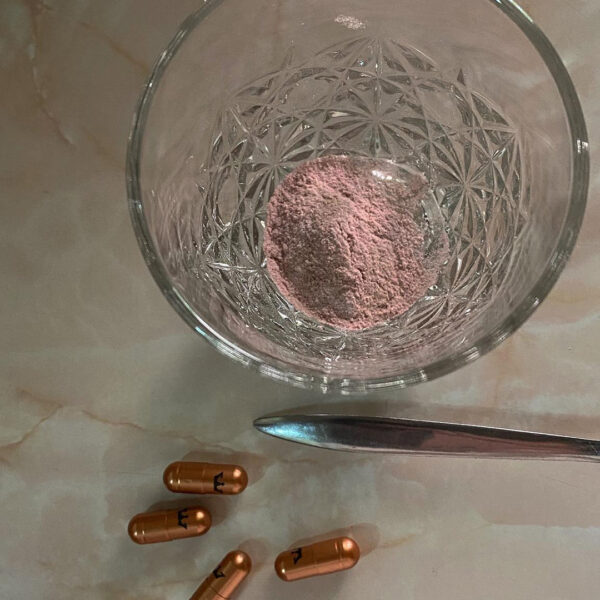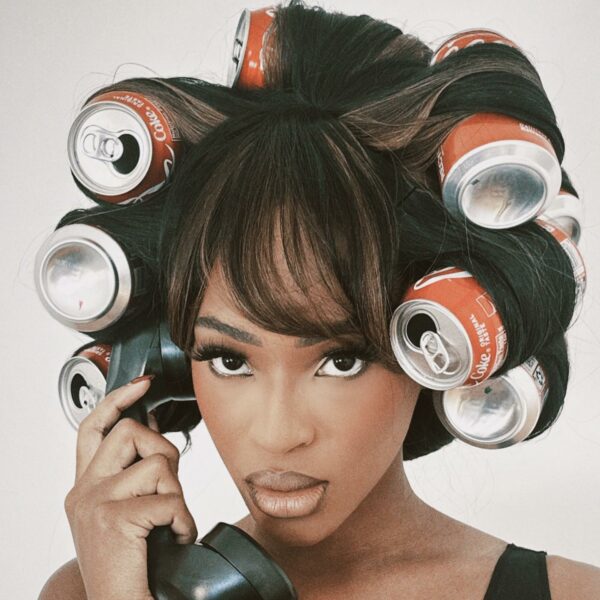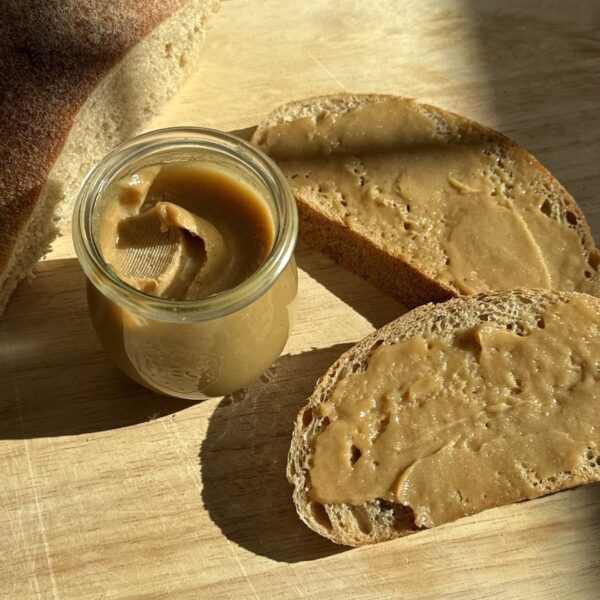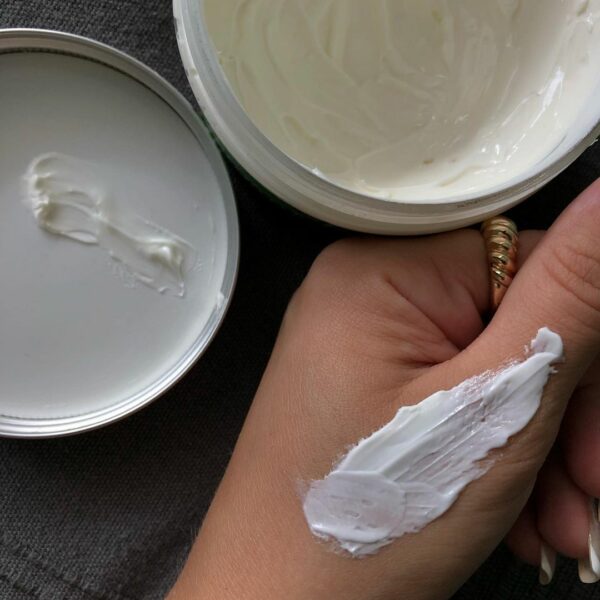To answer all of our gluten and diet-related questions, we spoke with someone very much up for the task when it comes to breaking down this topic. Dr. Uma Naidoo is a Harvard-trained nutritional psychiatrist, professional chef, nutrition specialist, and author of the national bestseller This is Your Brain on Food. She intimately understands the nuances of food and the effects it can have on us. Ahead, she elaborates on all of our inquiries and more.
Does gluten make you gain weight because it causes inflammation? Or is there another reason?
“The evidence surrounding a conclusion that gluten makes you gain weight remains inconsistent. Gluten found in processed bread products and shelf-stable bakery items may be pro-inflammatory to the gut, and this has been shown in research. However, as with all information in the nutrition space, there are a few caveats. This is where the type of gluten you eat becomes key—those from healthy whole grains versus shelf-stable bakery items are very different in their impact on your body and brain. For example, in those suffering from gluten-related disorders such as celiac disease, non-celiac gluten sensitivity, and wheat allergy, consumption of gluten can cause bloating that may feel like weight gain. Also, in individuals who are overweight, eating more complex carbohydrates such as sulforaphane-rich veggies (e.g. cauliflower, bok choy, broccoli) rather than whole wheat bread can find they may lose some weight. This is because the glycemic load of bread (approximately 72) is higher than for cauliflower (10). Another factor to note is that many of the foods we regularly consume that contain gluten also contain refined grains, sugars, and other processed ingredients. These foods can cause weight gain by spiking blood sugar levels and causing inflammation. Such reactions can also impact mental health in a way that leads to stress and fatigue, which can impact cravings.”
Are there ways to consume gluten without those side effects? For example, by taking supplements?
“If you have true celiac disease—that is, an auto-immune disorder in your digestive system triggered by consuming gluten—then the only definitive way to avoid its associated symptoms is to avoid gluten entirely. However, supplementing with digestive enzymes, which are substances produced by the body to break down the proteins, fats, and carbohydrates in what we eat, can help our body break down gluten and chase away some of those unpleasant side effects. Even for those who do intentionally avoid consuming wheat or gluten-containing products, there can be traces of gluten used in over-the-counter or prescription medications or supplements. Such items contain ingredients that allow the medication to absorb water from the body for breakdown, and such ingredients can be derived from minute amounts of gluten-containing plant sources that pose the risk of causing a reaction to those who are gluten sensitive.”
Why have we been able to consume gluten for hundreds of years, but only in the past decade or so have realized the negative effect it has on our bodies?
“While the nutritional content between ancient and ‘modern’ grains is technically about the same, there are other major factors such as industrialization and modern farming methods leading to the increased prevalence of gut problems such as gluten sensitivity that we see throughout western populations. For one, the quality of the grains we eat in modern times is very different from our ancestors. The modern super-fluffy bread often contains inflammatory ingredients such as added sugar, artificial colors, etc. There’s also some evidence to suggest that modern baking practices may increase exposure to gluten, which can increase the gluten content in our foods. Another factor is that gut health is worsening overall. The modern western diet is much more conducive to an imbalance between good and bad bacteria in the gut, known as dysbiosis, which can cause more inflammatory issues like leaky gut syndrome, which impairs the body’s ability to properly break down gluten proteins.”
What are three tips to slowly eliminate gluten from your diet?
“1) Start with a strong ‘why’ for cutting out gluten, as consuming healthy whole grains also brings important nutrients such as fiber to your gut. Again, the source of the gluten becomes important too. This will make it easier to reason out your dietary choices and make the best ones for your health goals. Such decisions should be influenced by what I call ‘body intelligence’ in nutritional psychiatry, which allows us to self-evaluate how foods impact our wellbeing and make choices intelligently. If after consuming gluten-containing products you feel bloated or come down with brain fog that impairs you from living with optimal energy and emotional wellbeing, slowly cutting out gluten may be right for you. Remembering these feelings of fatigue and stress when faced with food choices can help us choose non-gluten options.
2) Remove gluten-containing products from your home and limit gluten to only eating out at first. It’s easy to avoid gluten in your house if you don’t purchase it. If you have any unopened products with gluten in them, I suggest donating them to your local food shelter.
3) Swap instead of removing your staple gluten products. For example, try black bean tortillas instead of flour tortillas, soba noodles (buckwheat is gluten-free) instead of wheat noodles, or gluten-free granola instead of wheat cereal. You’ll adapt much more quickly if you can find alternatives that fit your taste!
Just remember that a product labeled ‘gluten-free’ does not make it a ‘healthy choice.’ In fact, many such processed products are laden with unhealthy starches like potato flour or other refined ingredients and added sugars.”
Is there any other helpful information you'd like to share with our readers?
“As with other pro-inflammatory foods, gluten consumption in folks with some form of gluten sensitivity is associated with heightened symptoms of depression and anxiety. If you’re finding yourself in a low mood after eating wheat, you’re not alone: in fact, this can be a common presenting symptom of gluten sensitivity. And it follows that in people with celiac disease, IBS, or non-celiac gluten sensitivity, following a gluten-free diet is associated with significantly improved psychological wellbeing.
Similarly, it is vital to distinguish celiac disease, the aforementioned auto-immune digestive condition, with non-celiac gluten sensitivity, in which affected individuals experience digestive or other symptoms post-consumption of gluten without the immune response seen in celiac disease. Taking gluten out of your diet if you have conditions like IBS may also provide some symptomatic relief! However, if gluten doesn’t bring about either constellation of unpleasant effects, it’s definitely worth some consideration to keep gluten in your diet: gluten-free products are often rife with enriched, processed grains and refined sugars to approximate the properties of gluten-containing flour (as you may know, gluten is a binding agent that gives wheat flour its stretchiness), which come with a host of potential negative consequences on our physical and mental health, including an increased risk of diabetes. In addition, the lack of fiber in many gluten-free flours, such as rice flour, concerns me as we may not actually be nourishing our gut—and therefore, our body, brain, and mind—in the name of going gluten-free. Rather than replacing gluten-containing products with their processed ‘gluten free’ alternatives, I suggest choosing naturally gluten-free whole grains like quinoa or barley, and filling up on otherwise fiber-rich vegetables.”
Shop our daily supplements collection:
The content provided in this article is provided for information purposes only and is not a substitute for professional advice and consultation, including professional medical advice and consultation; it is provided with the understanding that Poosh, LLC (“Poosh”) is not engaged in the provision or rendering of medical advice or services. The opinions and content included in the article are the views of the interviewee only, and Poosh does not endorse or recommend any such content or information, or any product or service mentioned in the article. You understand and agree that Poosh shall not be liable for any claim, loss, or damage arising out of the use of, or reliance upon any content or information in the article.
Up next, be the first to know our weekly content and sign up for our Poosh newsletter.






































